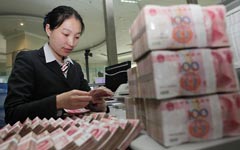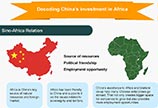Money will talk, sooner than later
By Giles Chance (China Daily) Updated: 2014-05-12 10:12
 |
|
Zhang Chengliang / China Daily |
Renminbi has the potential to create a seismic shift in the international monetary and financial arena
Evidence is emerging that international finance will take over from trade as the principal projector of China's global influence.
In a speech in Sydney in March, Philip Lowe, deputy governor of Australia's central bank, said: "The internationalization of the renminbi - and China's associated move toward a liberalized capital account and more flexible exchange-rate regime - has the potential to create a seismic shift in the international monetary and financial landscape."
| RMB internationalization could transform global markets |
 |
How long will it be before China becomes a major global force in financial affairs, rivaling the United States? What will the global impact be when it happens?
In March 2009, the governor of the People's Bank of China, Zhou Xiaochuan, published a now-famous essay called Reform the international monetary system, calling for a modernization of the monetary system by basing it on a money standard which stood above national currencies. The United Nations Commission of Financial Experts into the Reform of the Global Monetary and Financial System, reporting in September 2009, supported Zhou's appeal. But Japan and the European countries (excluding Russia) followed the United States in ignoring calls for monetary reform.
China gave up the idea of changing the global monetary system, and adopted a different strategy aimed at protecting its economy and large pool of savings: developing its own currency, the renminbi, as a major global currency to rival the dollar. An internationally-recognized, widely-used renminbi would protect China's savings, and bring Chinese the great convenience and lower cost of using the renminbi everywhere outside China. It would also make China into a global financial power.
- China eyes new tool to liberalize interest rate
- China's bank card consumer confidence picks up
- Money will talk, sooner than later
- China's housing sector to enter 'autumn season': expert
- More lock-up Chinese shares eligible for trade
- Small town grows thanks to flowers
- China issues 273-day discount T-bonds at 3.5%
- Reveling in good fortune of middle class

















